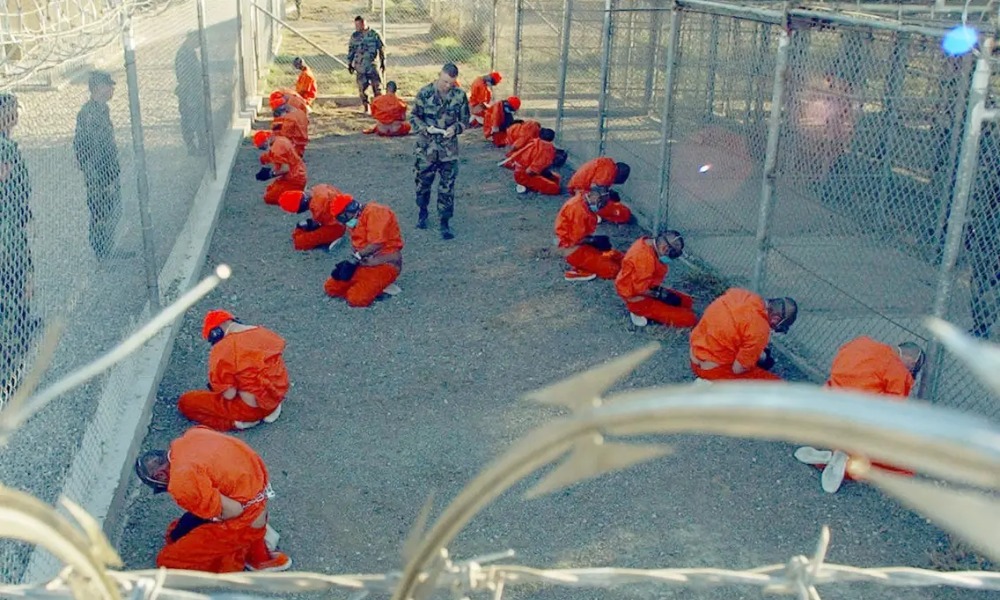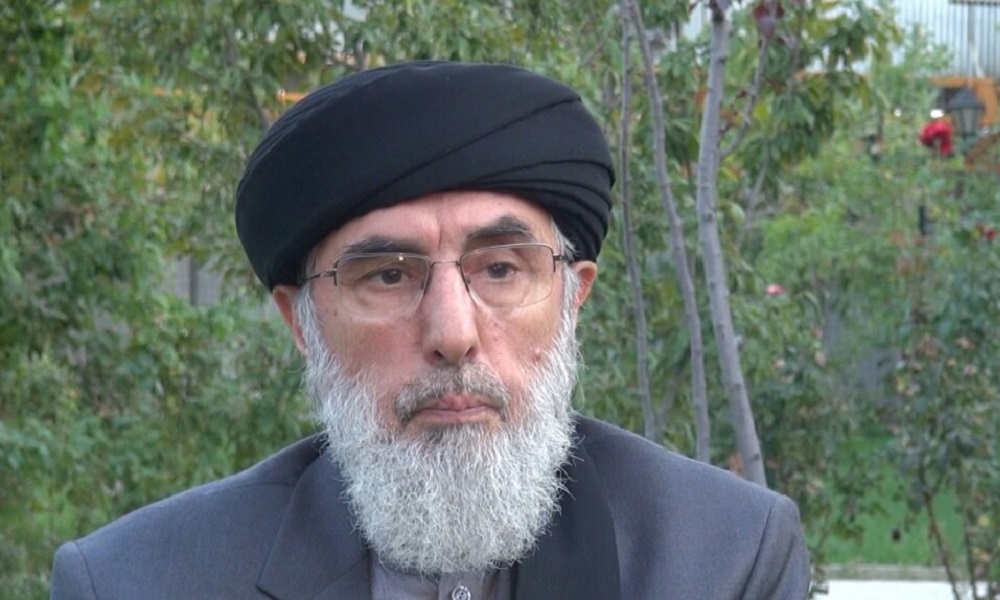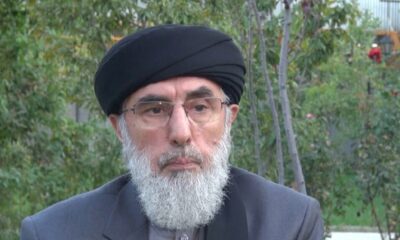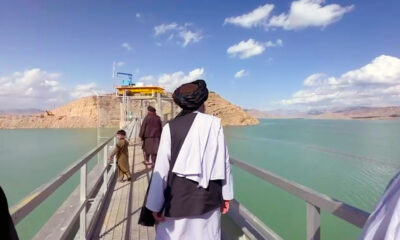Latest News
Biden’s decision on Afghanistan raises Guantanamo questions

US President Joe Biden’s decision to withdraw all troops from Afghanistan is raising questions about what, if any, effect that will have on the future of the Guantanamo Bay detention center.
According to The Hill, at least two prisoners who have been challenging their detention have already updated their complaints to include Biden’s withdrawal as a reason they should be released.
But according to some experts while the war on terrorism will continue even after the last U.S. service member leaves Afghanistan, the legal justification for indefinite detention at Guantanamo does not appear to be going anywhere anytime soon, The Hill reported.
“I think the short answer is that we just don’t know,” Steve Vladeck, a University of Texas law professor, said of the withdrawal’s effect on Guantanamo.
“It clearly provides the remaining Guantanamo detainees with a new ground on which to challenge the legal basis for their continuing military detention, and one that is not necessarily foreclosed by existing precedent,” he added in an email.
“But it’s not at all clear that courts will be sympathetic to those arguments, not just because they haven’t been to date, but because the Executive Branch is likely to argue that the conflict with al-Qaeda isn’t ending just because we’re leaving Afghanistan.”
Forty men remain detained at the facility opened by former President George W. Bush after the U.S. invasion of Afghanistan. Six have been cleared for transfer, and seven have been charged in the military commission system, including the five 9/11 suspects.
According to The Hill, the Biden administration is in the midst of reviewing the facility with the intention of closing it, but it remains to be seen whether that effort will be successful.
Amid the administration’s review, Biden is facing pressure to fulfill his promise to close the facility and 24 Senate Democrats penned a letter to Biden last week saying he could close the facility with “sufficient political will and swift action.”
“After years of indefinite detention without charge or trial; a history of torture and cruel, inhuman, and degrading treatment; and multiple attempts at a thoroughly failed and discredited military commission process, it is past time to close Guantanamo’s detention facility and end indefinite detention,” read the letter, which was organized by Senate Majority Whip Dick Durbin and Senate Appropriations Committee Chairman Patrick Leahy.
When Biden announced earlier this month he was ordering a full withdrawal from Afghanistan by September 11, he declared, “It’s time to end the forever war.”
But Alli McCracken Jarrar, North American campaigner for Amnesty International, told The Hill that if Biden is serious about ending the “forever war,” he will close Guantanamo.
“I hope that he can align his timeline to withdraw from Afghanistan with his plan to close Guantanamo,” she said. “It would be wonderful to see the whole detention camp shut down and the men transferred out by September 11. And I think that would make a lot of groups feel happy and would really be a positive sign that he’s committed to his human rights obligations.”
The Hill reported that last week, lawyers for two Guantanamo detainees filed motions for the release of their clients, citing the withdrawal.
One of the two detainees is Asadullah Haroon Gul, an approximately 40-year-old Afghan captured by Afghan forces in 2007. His lawyers argued in a motion seeking their client’s immediate release that the withdrawal takes away any basis to continue holding him.
“The law is clear: Asadullah gets to go home now, regardless of whether, as the government incorrectly contends, he was part of or substantially supported al- Qaeda,” his lawyers wrote in the motion.
Latest News
Media Violation Commission bans two TV channels

The Media Violations Commission has ordered Noor and Barya TV channels to stop broadcasting and to appear in court, state-run Bakhtar News Agency reported on Tuesday.
ّIt is said that the decision against the channels was taken for “not observing the principles of journalism.”
Latest News
Hekmatyar slams US for ‘occupying’ Afghanistan’s airspace

Former Jihadi leader Gulbuddin Hekmatyar has criticized the United States for patrolling Afghanistan’s airspace with drones.
Hekmatyar said in a speech Tuesday that any form of American presence in Afghanistan is unacceptable.
“Afghanistan’s airspace is under occupation. Expressing this issue is our religious responsibility. We have sacrificed the most for freedom. We do not accept any presence of America. We do not accept any kind of foreign rule,” he said.
Hekmatyar also stated that there is a possibility of American troops entering the country again.
“[Former] President Trump’s national security advisor says that their departure was a mistake and that they should return. This is not an ordinary issue. The possibility that they will make a mistake again and return to Afghanistan is very strong,” he said.
The Islamic Emirate has not commented so far on Hekmatyar’s remarks, but it has confirmed sightings of drones over Afghanistan.
“It is required that the respected officials of the caretaker government give explanations on this matter and respond to the concerns of the Afghan people in this matter, because important and great national issues are important for every Afghan citizen and if there is a problem, it will be a cause of concern for everyone,” said Fazl-ul-Hadi Wazin, a university lecturer.
Latest News
Uzbek and Qatari leaders discuss Trans-Afghan Railway project

Uzbekistan’s President Shavkat Mirziyoyev on Monday met with Qatar’s Prime Minister and Foreign Minister Sheikh Mohammed bin Abdulrahman Al Thani for talks on a number of issues including the Trans-Afghan Railway project.
The two leaders also discussed bilateral trade issues, strengthening of relations and regional matters, including the escalating situation in the Middle East.
In October 2023, Uzbekistan Railways JSC presented the Trans-Afghan Railway project to Qatar’s Ministry of Transport.
Subsequently, deliberations were held on Qatar’s involvement in the project’s execution.
In February 2021, Uzbekistan, Afghanistan, and Pakistan signed a roadmap for the Termez-Mazar-i-Sharif-Kabul-Peshawar railway construction.
The envisioned transport corridor, estimated at approximately $5 billion, aims to connect Europe, Russia, Uzbekistan, Afghanistan, Pakistan, India, and Southeast Asian nations, boasting a transit capacity of up to 20 million tons of cargo.
-

 Regional4 days ago
Regional4 days agoIndian foreign ministry advises against travel to Iran, Israel
-

 Latest News5 days ago
Latest News5 days agoAfghanistan withdrawal probe sparks anxiety within Biden administration: US’s McCaul
-

 Latest News4 days ago
Latest News4 days agoTop former US general claims Daesh-Khorasan is ‘on the upswing’
-

 Latest News4 days ago
Latest News4 days agoLightning strikes in Helmand kill one, injure three
-

 Science & Technology5 days ago
Science & Technology5 days agoChina launch of relay satellite Queqiao-2 for lunar probe mission successful
-

 World5 days ago
World5 days agoVoters in many countries sceptical of democracy, poll shows
-

 Business4 days ago
Business4 days agoAfghanistan reaches self-sufficiency in production of 133 items: MoIC
-

 Health4 days ago
Health4 days agoMajority of Afghans with mental disorders are women: officials
























